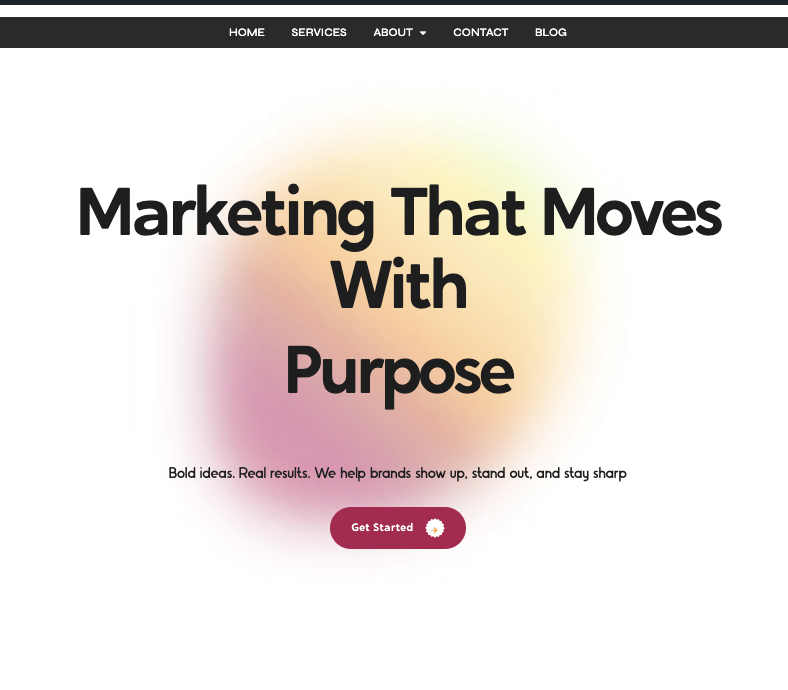What happens when ambition pairs with the wrong partner? Ideas stall, metrics flatten, and your brand voice gets lost in translation. It’s not a lack of drive—it’s a misalignment in execution. Choosing a marketing agency isn’t just about credentials or creative flair. It’s about fit—strategic, cultural, and operational. The right agency becomes an extension of your team, not just a service provider. They make complex problems feel manageable and long-term growth feel possible. If you’re wondering how to choose the right marketing agency for your business, here’s where to focus—not on hype, but on what truly matters for long-term success.
Think Beyond the Portfolio
Portfolios can mislead. Big-name clients and glossy visuals don’t always equal a high-performing agency. You’re not buying past work—you’re investing in how well an agency understands your goals.
A portfolio might show what an agency has done, but not how they did it—or if it delivered ROI.
Instead, evaluate:
Industry relevance: Have they tackled challenges in your market?
Project context: Were those impressive results achieved on a lean budget or with full enterprise support?
Problem-solving: Ask about a campaign that underperformed and what they learned from it.
One manufacturing startup chose an agency based on their work with fashion brands. The visuals were strong, but conversions? Practically zero. The audience mismatch was never addressed.
Your business deserves more than recycled ideas. Focus on how adaptable the agency is to your world.
Let Strategy Drive the Engagement
An ad campaign without strategy is like building a house without a blueprint—it might look good, but it won’t last.
Strong agencies begin with questions, not pitches. They want to understand your customer lifecycle, sales pipeline, and internal constraints before suggesting solutions.
Signs of a strategy-first agency:
They ask about your customer acquisition cost and lifetime value
They review your analytics before discussing deliverables
They align every tactic to measurable business goals
Let’s say your organic traffic is solid, but conversions lag. A strategy-first agency won’t just boost traffic—they’ll dig into your funnel, evaluate CTAs, and explore A/B testing. That’s where the value is.
Agencies that don’t invest time upfront usually struggle to deliver long-term impact. The best ones won’t even suggest channels until they fully understand your ecosystem.
Transparency Is a Non-Negotiable
In the age of dashboards and data, opacity is a red flag. If you’re only hearing about impressions and clicks, but never about revenue or conversion cost, you’re missing the full picture.
A trustworthy agency provides:
Access to real-time dashboards
Regular check-ins with actionable insights
Honest conversations—even when performance dips
A retail brand once shared how their former agency presented “engagement spikes” as wins. But sales were flat, and bounce rates had increased. It took an internal audit to uncover the disconnect.
A better approach? Agencies that walk you through the funnel—from top-of-funnel awareness to bottom-line ROI. They’ll share the wins and the learnings, not just the highlights.
Because real growth happens when you understand the why behind the numbers—not just the “what.”
Chemistry Isn’t Optional—It’s Strategic
You’re not hiring robots—you’re building a relationship. And chemistry matters.
The right agency will challenge you, listen closely, and adapt. The wrong one will just try to sell you.
Think about:
Meeting energy: Are conversations energizing or exhausting?
Collaboration: Do they ask smart follow-ups or jump to solutions?
Communication style: Can you speak openly, or do you feel “managed”?
One founder described switching agencies simply because it felt like they were “presented to” rather than involved. That kind of one-sided dynamic slows decision-making and kills momentum.
On the flip side, agencies that treat you like a partner—who welcome your input, push your thinking, and respond fast—will make you feel confident even when campaigns hit turbulence.
It’s not about being friendly. It’s about mutual respect, shared ownership, and seamless dialogue.














